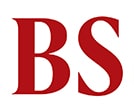Page 6 - Rbi Repo Rate
RBI advances OMO date, announces repo of Rs 1 trn in two tranches
The central bank has announced a series of measures to tide over any liquidity issues caused by the Coronavirus dislocation in the markets
Govt may cut interest rates on PPF, other small savings schemes: Report
The finance ministry has been nudging public sector banks to pass the whole repo rate cuts to retail loans for pushing consumption
Rate cut losing its potency as an instrument to stimulate growth: Analysts
People remain a little skeptical on how much rate cuts can aid economic recovery at a time when coronavirus is getting a tighter grip on the world
Policy transmission getting better, up by 20 bps in 2 months: RBI Governor
To keep inflation under specified level, the government in 2016 had decided to set up MPC headed by RBI governor entrusted with the task of fixing the benchmark policy rate (repo rate)
Bankers, analysts welcome RBI's liquidity boosting policy measures
The market has taken the long-term repos worth Rs 1 trillion as the biggest developmental and regulatory step that came out of the blue, analysts said
RBI policy: Repo rate unchanged at 5.15%; MPC retains accommodative stance
The RBI raised its inflation projection for the six months to Sept to 5-5.4% from 3.8-4% previously, while terming the outlook on price rise as "highly uncertain"
Long-term repos aimed at helping banks cut lending rates: Shaktikanta Das
At the sixth bi-monthly policy announcement, where the policy rates were left unchanged, the Reserve Bank announced long-term repurchase agreements (repos) of one-year and three-year tenors
Post Budget proposals, analysts see RBI holding rates in February MPC meet
Following the November print of 5.54%, RBI had sprung a surprise and opted to hold the repo rate at 5.15 per cent. It, however, continued with the accommodative stance as long as it was necessary.
RBI unexpectedly hits pause on rate cut; lowers FY20 GDP forecast to 5%
The 6-member Monetary Policy Committee (MPC), headed by RBI Governor Shaktikanta Das, unanimously voted to hold the key repo rate at 5.15% and reverse repo rate at 4.90%
Key takeaways from RBI's monetary policy meet
GDP growth forecast for FY20 has been revised downwards from 6.1 per cent in the October policy to 5 per cent
Best of BS Opinion: Delhi air pollution, a retreat from RCEP, and more
Here's a selection of Business Standard Opinion pieces for the day
The logjam in rate transmission
The gap between lending rates and RBI's repo rate has reached levels only seen in crises
RBI monetary policy: Here's what experts say about the latest rate cut
The six-member Monetary Policy Committee (MPC) cut the repo rate by 25 basis points to 5.15 per cent
Monetary policy review: RBI set to cut rate. Question is by how much?
The policy decision will be announced at 11:45 a.m. in Mumbai, followed by a press conference 15 minutes later by Das
Why linking loans to external benchmark is a tough challenge for banks
Rating agency Moody's Investor Services has already warned that the move would be credit negative for banks, causing volatility in net interest margins
Rate cuts not enough to boost liquidity-starved housing market: Poll
The government's own assessment is that the lack of available credit is the worst in over 70 years
Linking lending and repo rates may eat into bank's profitability
Current situation may not allow banks to significantly tinker with deposit rates making it tough to fully pass on the fall in repo rate
Minutes of MPC meeting: Fixing weak economic growth remains top priority
What is telling is that large swings in the Indian business cycle are still not a thing of the past, despite the adoption of inflation targeting in India
Time to formally link rates to repo, says RBI Governor Shaktikanta Das
Shaktikanta Das likely to initiate required steps in coming weeks
Budget numbers indeed look challenging to achieve: DSP MF's Saurabh Bhatia
Whilst the noise on feasibility of budget numbers and risks on sovereign borrowing would persist in the near term, the budget outcome has certainly eased the job for RBI MPC to ease rates further
